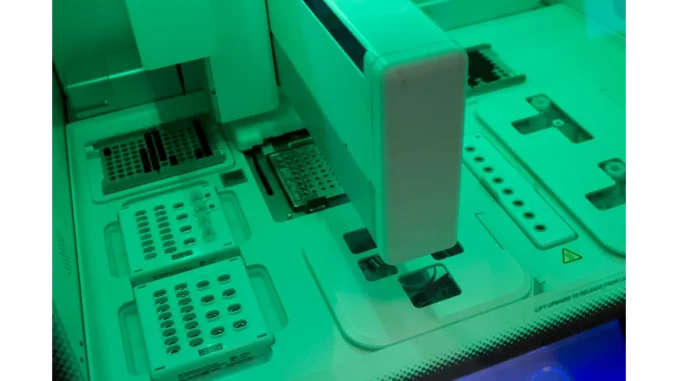
In the rapidly advancing realm of medical technology, the integration of artificial intelligence (AI) into healthcare systems is increasingly becoming a focal point of discussion. The potential of AI to revolutionise various medical fields is vast and compelling. However, its application within the specialised area of nephrology, particularly for the early detection and management of kidney diseases, is still in its formative stages. During a recent discussion with Dr Sarah Mendoza, a committed nephrologist based in the Philippines, I gained valuable insights into the current status of AI tools in detecting kidney diseases and the promising future they hold.
Dr Mendoza’s practice, situated in the vibrant centre of Manila, serves as a source of hope for numerous patients grappling with kidney conditions. As we embarked on our conversation, it was evident that her insights were deeply rooted not only in her professional acumen but also in a sincere commitment to advancing healthcare. “Currently, we don’t have access to AI tools,” she stated, her voice imbued with both optimism and caution. “However, in other countries, genetic testing is being utilised to identify kidney diseases that can be inherited.”
Dr Mendoza elaborated that while the Philippines has yet to embrace AI-driven genetic testing for kidney diseases, several other nations are already experimenting with these groundbreaking technologies. The potential to identify genetically inherited kidney diseases through AI represents a particularly promising avenue, as it could facilitate early intervention and enable personalised treatment strategies. In countries where these trials are ongoing, AI is employed to analyse genetic data, predicting the likelihood of developing kidney diseases and potentially transforming the approach of nephrologists towards diagnosis and treatment.
Our discussion naturally transitioned to the importance of genetic testing. Dr Mendoza underscored that such tests could serve as a critical tool in determining whether an individual is predisposed to inheriting kidney conditions from their family. “It’s not just about treating the disease,” she emphasised, “but also about understanding its root causes and preventing it in future generations.” Despite the exciting prospects, Dr Mendoza recognised the limitations of these advanced tests, particularly noting that the cost could pose a significant barrier to widespread implementation, potentially exacerbating the disparity between those who can afford advanced healthcare and those who cannot.
Dr Mendoza also highlighted the broader implications of AI across various medical disciplines. For instance, AI has already achieved notable success in the early detection of breast cancer. She cited a recent study indicating that AI could identify early signs of breast cancer more effectively than traditional mammograms, showcasing the transformative potential of AI beyond nephrology. This broader application of AI demonstrates its capability to significantly enhance diagnostic accuracy and efficacy across multiple fields of medicine.
The conversation then turned to the increasing prevalence of Chronic Kidney Disease (CKD) in the Philippines. According to recent statistics from the Philippine Statistics Authority, diseases of the genitourinary system ranked as the tenth leading cause of death in the country in 2023. This alarming statistic highlights the pressing need for more effective diagnostic tools and preventive measures. Dr Mendoza’s insights reminded us of the genetic component of CKD. “Chronic Kidney Disease can be inherited genetically,” she pointed out. “Individuals with a family history of CKD should undergo regular medical check-ups, even in the absence of symptoms.” This proactive approach could prove instrumental in mitigating the impact of CKD, especially in high-risk populations.
As our dialogue wound to a close, Dr Mendoza’s vision for the future emerged clearly. She envisions a healthcare landscape where AI-driven tools are not merely luxuries but fundamental components of diagnostic processes. Her aspiration is that, over time, these technologies will become accessible to all, transcending economic barriers. Reflecting on our discussion, it is apparent that the integration of AI in nephrology holds tremendous potential. While the journey towards widespread adoption may be fraught with challenges, the prospective benefits are too significant to overlook. As AI continues to evolve, it could very well become the cornerstone of a new era in kidney disease detection and treatment, offering hope to millions worldwide.
For the time being, however, the Philippines, alongside many other countries, remains on the brink of this technological transformation. The dedication and foresight of professionals like Dr Mendoza ensure that, when the moment arrives, the world will be prepared to harness AI’s full potential in reshaping healthcare for the better.


Be the first to comment